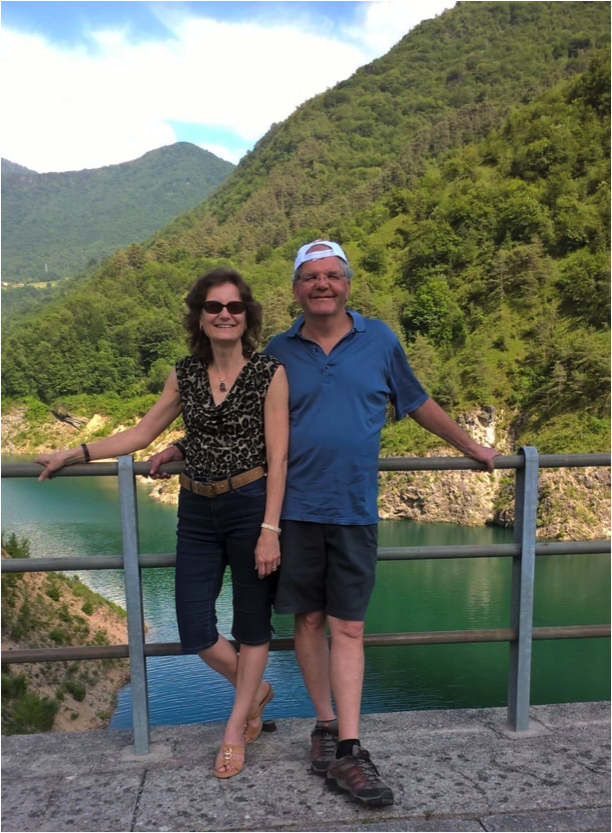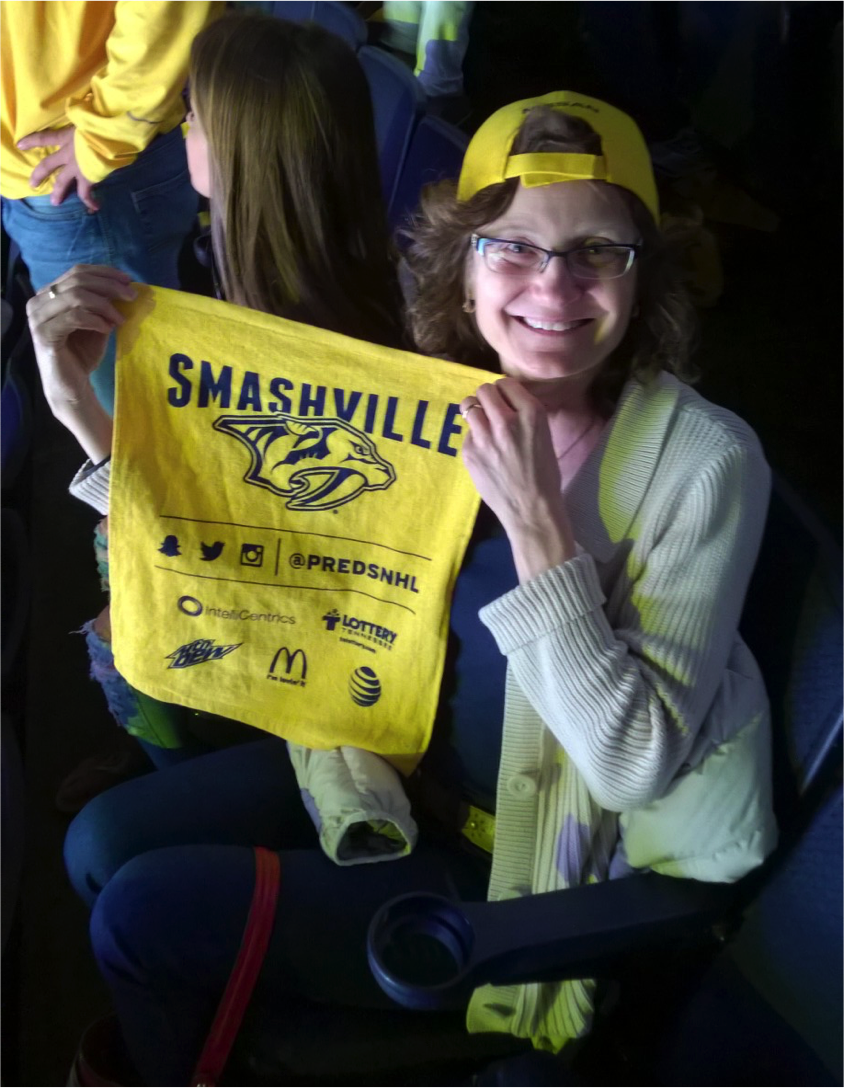Get to know Dr. Ambra Pozzi: MSTP Associate Director of Graduate Education
by Rachel Brown (M2)
After serving as an Avery-Cohen college advisor for 9 years, Dr. Ambra Pozzi will be joining the MSTP Leadership Team as Associate Director for Graduate Education. She will work in close collaboration with Dr. Danny Winder in providing support and guidance for our students during the graduate phase of their training, particularly overseeing MSTP didactic activities such as RCR and FBR. This summer, I got to know Dr. Pozzi by rotating in her lab. I asked her some questions about her training, her research, and her experience with the Vanderbilt MSTP.
 Where are you from, where did you train, and what brought you to Vanderbilt?
Where are you from, where did you train, and what brought you to Vanderbilt?
“I am originally from Brescia, a relatively small town in North of Italy. I received a Masters in Biochemistry at University in Milan and a Ph.D. in Molecular Pathology at University of Florence. In 1993, while performing my Ph.D. studies, I had a great mentor who suggested the idea to finish my studies abroad. For me, at that time, ‘abroad’ meant France or Switzerland, but when he suggested ‘California – The Scripps Research Institute’, for a moment my heart stopped beating. After the shock, I packed two bags and I started my U.S.A. adventure with the idea that after 2 years I would return to Italy. Then, after my Ph.D., I was offered a post-doc position at Scripps for 3 years. Then, I met Roy (my husband from South Africa) and we were both offered faculty positions at Vanderbilt. So here we go. As you can imagine, I never went back to Italy and my 2-year adventure has transformed into an incredible 23-year adventure.”
What are your current research interests?
“My laboratory has two distinct lines of research. One is focused on understanding mechanisms of fibrosis. We study two major class of matrix receptors, namely integrins and discoidin domain receptors. These receptors belong to a multigenic family and some members play anti-fibrotic actions, while other members play pro-fibrotic actions. Our goal is to dissect the pathways activated by these receptors in order to devise more effective and better tolerated therapies to treat, and ideally prevent, fibrosis.
The second line of research focuses on devising anti-angiogenic therapy for the treatment of pathological conditions such as cancer. We study a class of enzymes called cytochrome P450 epoxygenases that convert arachidonic acid to pro-angiogenic and vasodilatory derivatives known as EETs. Our goal is to determine the mechanisms whereby EETs play a pro-angiogenic action and to devise tools to inhibit and/or reduce the activity of epoxygenases in cancer.”
How did you first get involved in the MSTP?
“Many years ago, I was asked whether I was interested in helping MSTP students, primarily M1 and M2 students, in organizing slides for their journal club presentations. Thinking of how scared and petrified I was the first time I had to present a journal club to an audience, I thought that it was my time to ‘pay it forward’. So, I started to meet with students, helping them in selecting a paper and presenting it to an audience. A few years later, the idea of having ‘small’ and ‘large’ groups was proposed, and I really liked the idea, as the small group gives me an opportunity to interact with the presenter and the audience in a more personal way.”

What has been your favorite part of working with the MSTP so far?
“Without any doubt, the interactions I have with the students at the ‘small’ group sessions. The atmosphere is very relaxed and it is nice to discuss, agree, and sometimes disagree on scientific points. Moreover, I love to see the transformation of the students, from timid M1s to very professional and incredibly motivated G students to passionate M students.”
What aspect of your new role in the MSTP are you most excited about?
“The idea of helping students in finding a niche for their graduate studies. Sometimes choices can be overwhelming and, although I do not regret my scientific choices, I wish I could have had a mentor and/or senior person to talk to. Furthermore, I am excited about the possibility to help students in preparing their F30 fellowship applications. I have been serving on the NIH Fellowship study section for 3 years. I have learned to be a ‘mentor’ and a ‘reviewer’ at the same time, so I hope I can be of help.”
How do you like to spend your free time?
“If I am not in the lab, you can find me running or working out at the gym. I also have a passion for cooking and baking cakes (and this is why I need to run a lot!).”